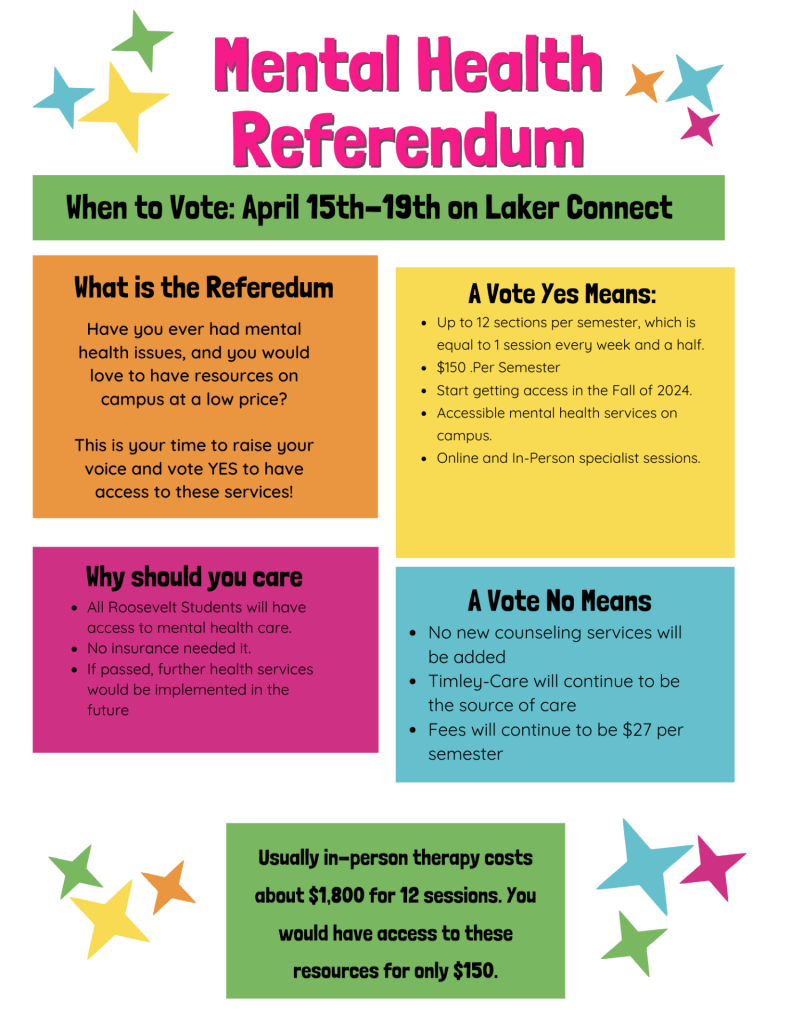Roosevelt University has created a Coronavirus (Covid-19) Emergence Response website to provide the university community with up-to-date information about this rapidly changing situation. Please check it frequently for new information on classes and campus operations. RU students should check their student email accounts frequently for announcements from the university as well as their professors. All Spring 2020 classes will resume in fully online format on 3/23.
To my students:
I hope this note finds you healthy and safe, whether in your home or your RU dorm room. Much has changed in these last two+ anxiety-riddled weeks. I’m sure you’ve been checking your RU email and following the university’s Emergency Response Site to get the latest updates on what’s happing at Roosevelt. Please continue to do so — but more importantly, take care of yourself and your loved ones during this pandemic crisis.
I want you to know that I recognize that this is a very stressful and uncertain time for all of us, and I will endeavor to be flexible as the rest of our semester continues. All RU classes are scheduled to recommence online this coming Monday, 3/23. While for many classes this will entail significant and somewhat inconvenient changes, as well as unexpected challenges, I am fully confident that in our SUST 101, 220, and 340 courses we will have a rich learning experience for the remainder of our course.
Today I simply wanted to check in with you, send you general words of encouragement, and invite you to email me questions if you have them. I will also set up “Water Cooler” discussion forums in all my Bb sites for general conversation and course-related questions for each class.We will endeavor to create and maintain a sense of community online as best we can.
In the meantime — hang in there, get your rest, eat well, stay in as much as possible (except for healthful walks, as you can manage), and do your best to adapt to this strange and disconcerting new reality. I’ll be (virtually) right there with you, working from my home office at Chez Bryson in Joliet IL, and tending to my own family during this difficult time. If you need help with your studies, internet access, academic advising, etc., please see RU’s Student Remote Participation Guide and other Services on the Covid-19 Response site.
Sincerely,
Prof B
The following is quoted directly from the latest post on the RU coronoavirus site, as of 3:24pm on 20 March 2020.
Dear Roosevelt Community,
Today [Friday 3/20] at 3:00pm Governor Pritzker has issued a ‘Stay At Home’ order for Illinois residents effective Saturday, March 21 at 5pm through Tuesday, April 7. Keep in mind, while this is a serious mandate to protect ourselves, families, friends, neighbors and fellow citizens, residents can still go to the grocery stores and pharmacies and put gas in their cars. All local roads, including interstate highways and tollways will remain open to traffic.
Illinois’s Stay At Home Order
The order allows the following to remain open:
- Essential services to continue: healthcare operations, grocery stores, food banks, convenience stores and other establishments engaged in retail sale of canned food, dry goods, fresh fruits and vegetables, pet supply, fresh meats, fish and poultry, and other household consumer products
- Operation of gas stations, auto supply and repair businesses
- Banks and other financial institutions
- Hardware stores
- Restaurants that serve food only for deliver and carry-out
- Home-based care for seniors, adults and children
- Laundromats, drycleaners
- Mailing and shipping services and other
Social Distancing at Roosevelt
Here at Roosevelt we have already been taking those steps by practicing all forms of social distancing, including by moving classes online and providing students with guidance and resources around maintaining their coursework while not in the classroom. In an abundance of caution and social responsibility, we have also canceled or rescheduled a number of scheduled events.
Now that the stay at home order is in effect, we write to provide you with information regarding services and resources that will continue to be available at Roosevelt.
Students in Residence Halls
- The Wabash Building and the University Center remain open and accessible for all residential students. If you have not notified the office of residence life that you intend to remain in the halls, please do so immediately by emailing reslife@roosevelt.edu.
- The dining center in both buildings will remain open.
- Only essential residence life, building maintenance and campus security staff will remain on campus.
- For a full list of student services that remain available via phone or online, please visit the COVID-19 website.
Classes
- There will no longer be scheduled in-person classes. All classes will be held online. Please check Blackboard, your email, and the COVID-19 website for updates. As previously communicated, online classes will begin as scheduled on Monday, March 23rd.
- Roosevelt has 24 hour/7 day a week technology support. Go to roosevelt.edu/helpdesk and if you are unable to resolve the issue through knowledge base, you can submit a ticket or call 312.341.HELP (4357). For Blackboard and Zoom related help email blackboardhelp@rooesvelt.edu.
Payroll
- Payroll for faculty, administrators and staff will continue to process, as scheduled, and will be paid by direct deposit. If you do not have a direct deposit form on file, please contact Heather Williams at hwilliams15@roosevelt.edu
- Direct deposit is strongly encouraged and those who have not established direct deposit could experience lengthy delays in getting paid.
Campus Facilities
- All university buildings and offices are closed, or moving fully online, until further notice, with the exception of the following: campus safety, office of residence life, dining services and university facilities.
What we know today is that we will continue to make decisions in order to keep our community safe and healthy during this local state of emergency. We will keep you updated on the impact this mandate has on our community as we get the information.
Please continue to visit this site for all the information, updates and resources and email us at COVID19info@roosevelt.edu if you have any questions or concerns.
Sincerely,
Ali R. Malekzadeh, Ph.D.
President
Lois Becker, Ph.D.
Provost and Executive Vice President for Academic Affairs



